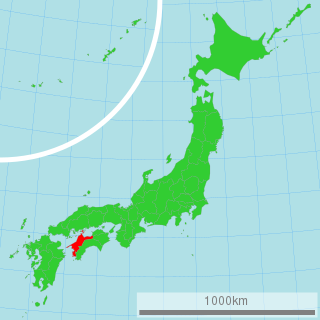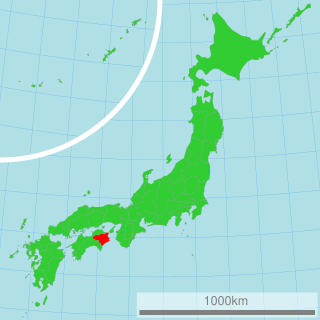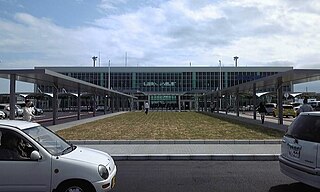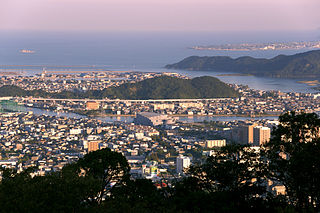| Cipangocharax kiuchii | |
|---|---|
| Scientific classification | |
| Kingdom: | |
| Phylum: | |
| Class: | |
| (unranked): | |
| Superfamily: | |
| Family: | |
| Subfamily: | |
| Genus: | |
| Species: | C. kiuchii |
| Binomial name | |
| Cipangocharax kiuchii Minato H., Abe C., 1982 | |
Cipangocharax kiuchii is a species of small tropical land snails with an operculum, terrestrial gastropod mollusks in the family Cyclophoridae.
In biology, a species is the basic unit of classification and a taxonomic rank of an organism, as well as a unit of biodiversity. A species is often defined as the largest group of organisms in which any two individuals of the appropriate sexes or mating types can produce fertile offspring, typically by sexual reproduction. Other ways of defining species include their karyotype, DNA sequence, morphology, behaviour or ecological niche. In addition, paleontologists use the concept of the chronospecies since fossil reproduction cannot be examined.

A land snail is any of the numerous species of snail that live on land, as opposed to the sea snails and freshwater snails. Land snail is the common name for terrestrial gastropod mollusks that have shells. However, it is not always easy to say which species are terrestrial, because some are more or less amphibious between land and fresh water, and others are relatively amphibious between land and salt water.

The operculum, meaning little lid, is a corneous or calcareous anatomical structure like a trapdoor which exists in many groups of sea snails and freshwater snails, and also in a few groups of land snails; the structure is found in some marine and freshwater gastropods, and in a minority of terrestrial gastropods, including the families Helicinidae, Cyclophoridae, Aciculidae, Maizaniidae, Pomatiidae, etc.
This species is endemic to the limestone region of Tokushima-ken, Japan.

Endemism is the ecological state of a species being unique to a defined geographic location, such as an island, nation, country or other defined zone, or habitat type; organisms that are indigenous to a place are not endemic to it if they are also found elsewhere. The extreme opposite of endemism is cosmopolitan distribution. An alternative term for a species that is endemic is precinctive, which applies to species that are restricted to a defined geographical area.

Japan is an island country in East Asia. Located in the Pacific Ocean, it lies off the eastern coast of the Asian continent and stretches from the Sea of Okhotsk in the north to the East China Sea and the Philippine Sea in the south.












